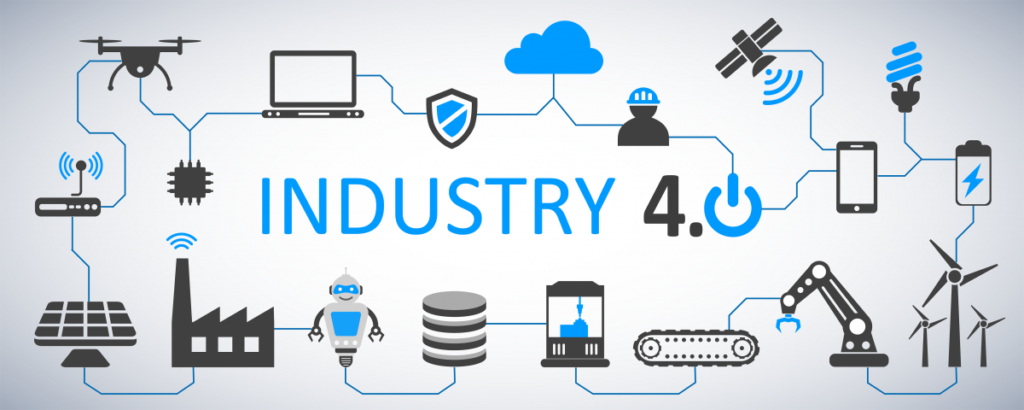[fusion_builder_container type=”flex” hundred_percent=”no” hundred_percent_height=”no” hundred_percent_height_scroll=”no” align_content=”stretch” flex_align_items=”flex-start” flex_justify_content=”center” hundred_percent_height_center_content=”yes” equal_height_columns=”no” container_tag=”div” hide_on_mobile=”small-visibility,medium-visibility,large-visibility” status=”published” border_style=”solid” box_shadow=”no” box_shadow_blur=”0″ box_shadow_spread=”0″ gradient_start_position=”0″ gradient_end_position=”100″ gradient_type=”linear” radial_direction=”center center” linear_angle=”180″ background_position=”center center” background_repeat=”no-repeat” fade=”no” background_parallax=”none” enable_mobile=”no” parallax_speed=”0.3″ background_blend_mode=”none” video_aspect_ratio=”16:9″ video_loop=”yes” video_mute=”yes” absolute=”off” absolute_devices=”small,medium,large” sticky=”off” sticky_devices=”small-visibility,medium-visibility,large-visibility” sticky_transition_offset=”0″ scroll_offset=”0″ animation_direction=”left” animation_speed=”0.3″ filter_hue=”0″ filter_saturation=”100″ filter_brightness=”100″ filter_contrast=”100″ filter_invert=”0″ filter_sepia=”0″ filter_opacity=”100″ filter_blur=”0″ filter_hue_hover=”0″ filter_saturation_hover=”100″ filter_brightness_hover=”100″ filter_contrast_hover=”100″ filter_invert_hover=”0″ filter_sepia_hover=”0″ filter_opacity_hover=”100″ filter_blur_hover=”0″ admin_toggled=”no”][fusion_builder_row][fusion_builder_column type=”1_1″ layout=”5_6″ align_self=”auto” content_layout=”column” align_content=”flex-start” valign_content=”flex-start” content_wrap=”wrap” center_content=”no” column_tag=”div” target=”_self” hide_on_mobile=”small-visibility,medium-visibility,large-visibility” sticky_display=”normal,sticky” order_medium=”0″ order_small=”0″ hover_type=”none” border_style=”solid” box_shadow=”no” box_shadow_blur=”0″ box_shadow_spread=”0″ background_type=”single” gradient_start_position=”0″ gradient_end_position=”100″ gradient_type=”linear” radial_direction=”center center” linear_angle=”180″ lazy_load=”none” background_position=”left top” background_repeat=”no-repeat” background_blend_mode=”none” filter_type=”regular” filter_hue=”0″ filter_saturation=”100″ filter_brightness=”100″ filter_contrast=”100″ filter_invert=”0″ filter_sepia=”0″ filter_opacity=”100″ filter_blur=”0″ filter_hue_hover=”0″ filter_saturation_hover=”100″ filter_brightness_hover=”100″ filter_contrast_hover=”100″ filter_invert_hover=”0″ filter_sepia_hover=”0″ filter_opacity_hover=”100″ filter_blur_hover=”0″ animation_direction=”left” animation_speed=”0.3″ margin_bottom=”0px” last=”true” border_position=”all” first=”true” min_height=”” link=””][fusion_text columns=”” column_min_width=”” column_spacing=”” rule_style=”” rule_size=”” rule_color=”” hue=”” saturation=”” lightness=”” alpha=”” content_alignment_medium=”” content_alignment_small=”” content_alignment=”” hide_on_mobile=”small-visibility,medium-visibility,large-visibility” sticky_display=”normal,sticky” class=”” id=”” margin_top=”” margin_right=”” margin_bottom=”” margin_left=”” fusion_font_family_text_font=”” fusion_font_variant_text_font=”” font_size=”” line_height=”” letter_spacing=”” text_transform=”” text_color=”” animation_type=”” animation_direction=”left” animation_color=”” animation_speed=”0.3″ animation_delay=”0″ animation_offset=”” logics=””]
With recent technological advancements, Industry 4.0 is dramatically transforming supply chains and revolutionizing manufacturing processes. Businesses are now experiencing unprecedented changes in managing and optimizing their supply chains, leading to significant improvements in productivity and efficiency.
UNDERSTANDING INDUSTRY 4.0
Industry 4.0 integrates advanced technologies like IoT, AI, and automation into production, marking a new era in manufacturing. Through real-time data analysis, smart factories can optimize operations, streamline processes, enhance productivity, and reduce costs. These innovations foster machine connectivity, enabling seamless communication and coordination, which provides companies with deep insights into their operations and facilitates better decision-making.
SMART FACTORIES: THE BACKBONE OF INDUSTRY 4.0
Smart factories are the heart of Industry 4.0, revolutionizing manufacturing with cutting-edge technologies. By leveraging IoT and AI, these advanced facilities enhance manufacturing efficiency and quality control. Real-time data analytics allow for optimized operations, reducing downtime and boosting productivity. Predictive maintenance prevents equipment failures, ensuring smooth operations, while automation and robotics streamline labor-intensive tasks, minimizing errors and increasing output consistency. Additionally, smart factories prioritize quality control by using sensors and AI to detect defects early in the production cycle.
CONNECTIVITY AND IoT IN MANUFACTURING
IoT and connectivity play crucial roles in streamlining operations and enhancing efficiency in manufacturing. IoT devices, such as sensors and actuators, enable seamless communication between machinery, allowing for real-time monitoring and data collection. This connectivity provides valuable insights into production processes, leading to informed decision-making and proactive maintenance strategies. IoT-driven predictive analytics help optimize resource utilization, improve overall productivity, and ensure timely interventions to prevent breakdowns and minimize downtime.
AI AND MACHINE LEARNING IN SUPPLY CHAIN MANAGEMENT
AI and machine learning are indispensable tools for overcoming procurement challenges in supply chain management. By harnessing AI algorithms, businesses can optimize procurement processes, from supplier selection to contract negotiation. Machine learning analyzes vast amounts of data to identify patterns and trends, enabling more accurate demand forecasting and inventory management. This predictive capability helps businesses anticipate demand fluctuations, adjust procurement strategies, and minimize stockouts or overstocking. AI-powered analytics also provide insights into supplier performance, facilitating data-driven decisions and stronger supplier relationships.
ROBOTICS AND AUTOMATION REVOLUTIONIZING PRODUCTION
Robotics and automation are transforming production processes by performing repetitive tasks with precision and efficiency. Automating manual processes significantly increases production output while reducing labor costs. Robotics enhance workplace safety by handling hazardous tasks and minimizing human exposure to risk. Collaborative robots, or cobots, allow human workers to collaborate seamlessly with machines, boosting productivity. Automation also enables flexibility in production, allowing rapid reconfiguration of production lines to meet changing demands, enabling businesses to respond swiftly to market fluctuations and customer preferences.
3D PRINTING: A GAME-CHANGER IN MANUFACTURING
3D printing represents a significant advancement in manufacturing, offering versatility and efficiency. This innovative technology enables the creation of complex geometries and intricate designs with unmatched precision. Unlike conventional methods, 3D printing reduces material wastage and allows for on-demand production, eliminating the need for large inventories and costly tooling. Rapid prototyping capabilities accelerate product development cycles, bringing new ideas to market faster. From aerospace components to medical implants, 3D printing offers solutions to diverse industry challenges.
SUPPLY CHAIN VISIBILITY AND TRANSPARENCY
Supply chain visibility and transparency are vital for modern business operations, enabling companies to track goods from suppliers to customers. Technologies like blockchain enhance transparency across supply chains, ensuring accountability and trust. Real-time visibility into inventory levels, shipping status, and production schedules allows companies to make better decisions and respond swiftly to demand changes or disruptions. Enhanced transparency also improves risk management and regulatory compliance, reducing the likelihood of costly penalties or reputational damage.
RESILIENCE AND AGILITY IN SUPPLY CHAIN MANAGEMENT
Resilience and agility are essential for successful supply chain management, especially in today’s volatile business environment. Companies prioritizing these qualities can adapt quickly to unforeseen disruptions and maintain operational continuity. For instance, the moving industry, where speed and reliability are crucial, benefits greatly from resilient and agile supply chains. Companies like Relosmart Movers Hong Kong demonstrate how resilience and agility ensure high-quality services globally, meeting strict schedules and offering customized relocation solutions.
SUSTAINABILITY AND ETHICAL MANUFACTURING PRACTICES
As consumers become more environmentally conscious, sustainability and ethical manufacturing practices are gaining traction. Companies are increasingly embracing these principles to minimize their environmental footprint and uphold ethical standards throughout their supply chains. By adopting sustainable manufacturing processes and responsibly sourcing materials, businesses can reduce waste, energy consumption, and environmental impact. For example, Patagonia and Eileen Fisher have integrated sustainability into their business models, showing a commitment to ethical production and environmental stewardship.
THE NECESSARY SKILLS FOR LEVERAGING INDUSTRY 4.0
Workforce development and upskilling are crucial for driving supply chain improvements in the digital age. As technology advances and supply chains become more complex, companies must invest in training programs to equip employees with necessary skills like data analytics, AI, and automation. Upskilling enhances workforce capabilities and adaptability, fostering loyalty and engagement, leading to higher job satisfaction and retention rates.
LEADING THE FUTURE OF MANUFACTURING
To stay competitive in the rapidly evolving landscape of Industry 4.0, businesses must embrace technological advancements such as IoT, AI, and automation. These innovations unlock unprecedented efficiency, resilience, and sustainability, positioning companies as leaders in the modern manufacturing industry. By leveraging these technologies, businesses can thrive amid new developments and continue to drive the future of manufacturing.
[/fusion_text][/fusion_builder_column][/fusion_builder_row][/fusion_builder_container]


